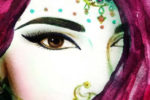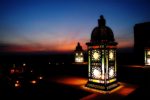In the last few years, the international emphasis on locating social rights within the Qur’an has primarily been driven by and for women. NGOs in Morocco, Malaysia, Jordan, Afghanistan, Tunisia, and countless other Muslim countries have rallied communities, encouraging them to look critically at the patriarchal structures that have dictated Qur’anic interpretation to date. Through methods unlike those of western countries—methods that often include political embeddedness, the provision of social services, and ijtihad (the independent legal interpretation of the Qur’an and Sunnah)—these women’s organizations have quietly and non-confrontationally effected change in the international understanding of women’s rights in Islam.
Now, a new generation of Muslims is coming of age. These young Muslims raptly follow gay pop icons, watch the Obama administration refuse to defend the Defense of Marriage Act, and generally witness a liberalization of social values. For better or worse, they feel the pressure of international human rights, and their understanding of their own rights have changed in kind. Perhaps as a result, international media have paid closer attention to the ways in which gay Muslim youth worldwide are attempting to reconcile their faith with an identity most of them feel they didn’t choose.
A BBC series last week investigated a trend in which gay British Muslims seek nikahs, altering to suit their purposes the traditional Islamic contracts designed for straight couples. The piece is surprisingly good, discussing the colossal strain placed on gay Muslims who feel like their central identities are in diametric opposition. While for most Muslims—and for most religious people, really—this opposition forces them to choose one identity over the other, the article maintains refreshing focus on Muslims who believe that being gay needn’t prevent them from living an Islamic lifestyle.
Near the end of the article, one of the interviewees named Sarah mentions that “there’s a deep-rooted assumption in the secular queer community that you can’t be gay and believe in anything, apart from yourself or materialism.” In most religious communities, it’s absolutely true that queerness presents too overwhelming a challenge to explicit religious text; Genesis doesn’t kid around in reference to Sodom and Gomorrah, and it’s hard to justify your sexuality when Deuteronomy plainly states you should be stoned to death for it. But wonderfully, compellingly, there’s a recent uptick in the number of faith-based organizations helping gay Muslims integrate both identities into their lives.
A little side note, if I may: I’ve always believed that one of the best things—if not the best thing—about Islam is its infinite interpretations. The same ambiguity and lack of consensus that causes all the ruckus we in the blogosphere complain about also gave rise to Imaan, the Safra Project, and The Inner Circle, to name a few. These groups attempt to locate social equality in the Qur’an in the same way that women’s organizations have been for years now. They create communities within communities, provide counseling, answer questions, hold symposia, and develop networks. They actively work to engage both the Muslim and queer identities of their constituents, and they continually break new ground and challenge what we think we know about the future of Islam.
And though the goals of these queer organizations and gay Muslims fall squarely outside of mainstream Islamic tradition, they’re being achieved through a cycle of interpretation and re-interpretation that’s richly and beautifully Islamic. Let’s hope it keeps getting the media attention it deserves, because it might just herald a new era of social rights in Islam.



